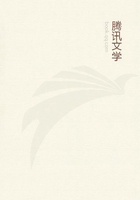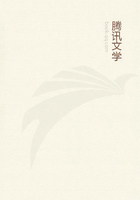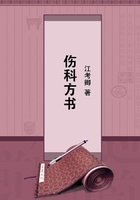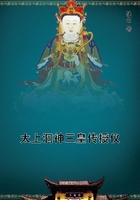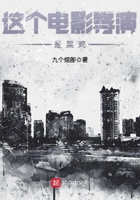A TYPE OF THE COUNTRY USURER
Strategically, Rigou's position at Blangy was that of a picket sentinel.He watched Les Aigues, and watched it well.The police have no spies comparable to those that serve hatred.
When the general first came to Les Aigues Rigou apparently formed some plans about him which Montcornet's marriage with a Troisville put an end to; he seemed to have wished to patronize the new land-owner.In fact his intentions were so patent that Gaubertin thought best to let him into the secrets of the coalition against Les Aigues.Before accepting any part in the affair, Rigou determined, as he said, to put the general between two stools.
One day, after the countess was fairly installed, a little wicker carriage painted green entered the grand courtyard of the chateau.The mayor, who was flanked by his mayoress, got out and came round to the portico on the garden side.As he did so Rigou saw Madame le comtesse at a window.She, however, devoted to the bishop and to religion and to the Abbe Brossette, sent word by Francois that "Madame was out."
This act of incivility, worthy of a woman born in Russia, turned the face of the ex-Benedictine yellow.If the countess had seen the man whom the abbe told her was "a soul in hell who plunged into iniquity as into a bath in his efforts to cool himself," if she had seen his face then she might have refrained from exciting the cold, deliberate hatred felt by the liberals against the royalists, increased as it was in country-places by the jealousies of neighborhood, where the recollections of wounded vanity are kept constantly alive.
A few details about this man and his morals will not only throw light on his share of the plot, called "the great affair" by his two associates, but it will have the merit of picturing an extremely curious type of man,--one of those rural existences which are peculiar to France, and which no writer has hitherto sought to depict.Nothing about this man is without significance,--neither his house, nor his manner of blowing the fire, nor his ways of eating; his habits, morals, and opinions will vividly illustrate the history of the valley.This renegade serves to show the utility of democracy; he is at once its theory and its practice, its alpha and its omega, in short, its "summum."
Perhaps you will remember certain masters of avarice pictured in former scenes of this comedy of human life: in the first place the provincial minister, Pere Grandet of Saumur, miserly as a tiger is cruel; next Gobseck, the usurer, that Jesuit of gold, delighting only in its power, and relishing the tears of the unfortunate because gold produced them; then Baron Nucingen, lifting base and fraudulent money transactions to the level of State policy.Then, too, you may remember that portrait of domestic parsimony, old Hochon of Issoudun, and that other miser in behalf of family interests, little la Baudraye of Sancerre.Well, human emotions--above all, those of avarice--take on so many and diverse shades in the diverse centres of social existence that there still remains upon the stage of our comedy another miser to be studied, namely, Rigou,--Rigou, the miser-egoist; full of tenderness for his own gratifications, cold and hard to others; the ecclesiastical miser; the monk still a monk so far as he can squeeze the juice of the fruit called good-living, and becoming secular only to put a paw upon the public money.In the first place, let us explain the continual pleasure that he took in sleeping under his own roof.
Blangy--by that we mean the sixty houses described by Blondet in his letter to Nathan--stands on a rise of land to the left of the Thune.
As all the houses are surrounded by gardens, the village is a very pretty one.Some houses are built on the banks of the stream.At the upper end of the long rise stands the church, formerly flanked by a parsonage, its apse surrounded, as in many other villages, by a graveyard.The sacrilegious old Rigou had bought the parsonage, which was originally built by an excellent Catholic, Mademoiselle Choin, on land which she had bought for the purpose.A terraced garden, from which the eye looked down upon Blangy, Cerneux, and Soulanges standing between the two great seignorial parks, separated the late parsonage from the church.On its opposite side lay a meadow, bought by the last curate of the parish not long before his death, which the distrustful Rigou had since surrounded with a wall.
The ex-monk and mayor having refused to sell back the parsonage for its original purpose, the parish was obliged to buy a house belonging to a peasant, which adjoined the church.It was necessary to spend five thousand francs to repair and enlarge it and to enclose it in a little garden, one wall of which was that of the sacristy, so that communication between the parsonage and the church was still as close as it ever was.
These two houses, built on a line with the church, and seeming to belong to it by their gardens, faced a piece of open ground planted by trees, which might be called the square of Blangy,--all the more because the count had lately built, directly opposite to the new parsonage, a communal building intended for the mayor's office, the home of the field-keeper, and the quarters of that school of the Brothers of the Christian Doctrine, for which the Abbe Brossette had hitherto begged in vain.Thus, not only were the houses of the ex-monk and the young priest connected and yet separated by the church, but they were in a position to watch each other.Indeed, the whole village spied upon the abbe.The main street, which began at the Thune, crept tortuously up the hill to the church.Vineyards, the cottages of the peasantry, and a small grove crowned the heights.

